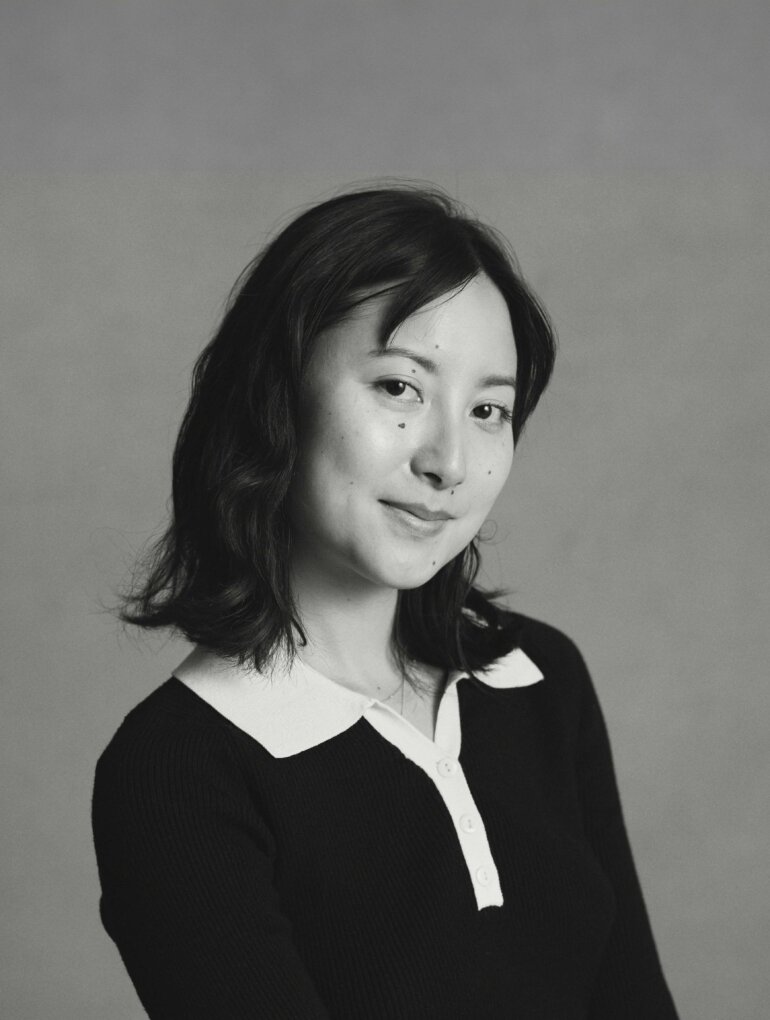Defining Her Own Path
Asian-Americans, teens on TikTok, and LGBTQ+ audiences have loved “Lucky Fish,” the debut short film by writer and director Emily May Jampel ’13. But the appeal of her storytelling is broad, and Jampel is reluctant to be put in a box.
“It’s been interesting to see the reception of how your work gets perceived and portrayed,” she says. “People assume ‘all your films must be queer,’ or ‘you only make movies about Chinese-Americans,’ but they don’t know that I’m also Japanese and that I’m also a quarter white. I definitely am conscious of not wanting to be pigeonholed as a filmmaker or just as a person in general.”
“Lucky Fish” is a coming-of-age tale of two Asian-American teen girls who meet in a Chinese restaurant while out to dinner with relatives and quickly find common ground in their family expectations, sexuality and teen angst. It has played at festivals including Palm Springs International Film Festival (Winner, Young Cineastes Award, Special Mention, Best LGBTQ+ Short), Champs-Élysées (Winner, Audience Award), Outfest L.A. and premiered on NOWNESS Asia. The short is also a bonafide viral sensation and was instrumental in helping Jampel attain The New Voices Filmmaker Grant 2023. The new initiative, a partnership between Netflix and NewFest, provides a $25,000 grant to facilitate the creation of new projects and professional development.
Striking while the iron is hot, Jampel is now set to unveil a second short, “Mānoa Valley,” which reflects a different, artsier side of her. Shot in her hometown on O‘ahu, this film is about two high school friends who spend a summer day together before leaving for college. Both of the main characters are hapa, and the film is set in Hawai‘i, but the word ‘Hawai‘i’ is never mentioned. “That’s kind of the way I want to make films as far as how I represent gender and sexuality and ethnicity and culture. I want it to be in there, but not have it be so on the nose,” she says.
She’s on an artistic roll now, but the path to filmmaking wasn’t always so clear for Jampel, even as opportunities, mentors and influences intersected and shaped her journey. She didn’t attend film school, instead studying at NYU Gallatin, where an individualized study program put her in proximity with other young filmmakers and artists. She is grateful to former Punahou college counselor Myron Arakawa ’66 for recognizing her unusual resume and recommending the experimental curriculum at NYU. “He was spot on,” she says.
Early on, Jampel interned at numerous production companies where her job required her to watch a lot of short films and find new projects and up-and-coming filmmakers. “My favorite ones, the ones that struck me the most, were the simple ones. It does need a beginning, middle and end, but you don’t need to know everything. One moment is enough.”
During pandemic lockdown, she challenged herself to use that structure to write her own short film. “If I have two actors, one location and one day so there’s no outfit changes, how can I build a story around that?” she asked herself. Jampel worked on “Lucky Fish” through the pandemic, eventually filming in New York City in May 2021. Covid shutdowns allowed her to sit with the script and work through many revisions before actually shooting.
With the success of “Lucky Fish,” and the desire to work on her own projects instead of someone else’s, Jampel quit her full-time job in March 2023. She is navigating the industry as a freelancer and developing her films. Jampel has submitted “Mānoa Valley” to film festivals and is hopeful it will premiere in early 2024.
Jampel is open to what the future holds for her. “I want it to be something I’m really excited and passionate about and also something that hasn’t been done before and kind of needs to be made. It will come to me at some point, and it will be like a burning hole in my pocket, and I’ll be like ‘Okay, this is going to be my next three or four years. Here we go.’”
Photo Credit: Photo by Tess Ayano

